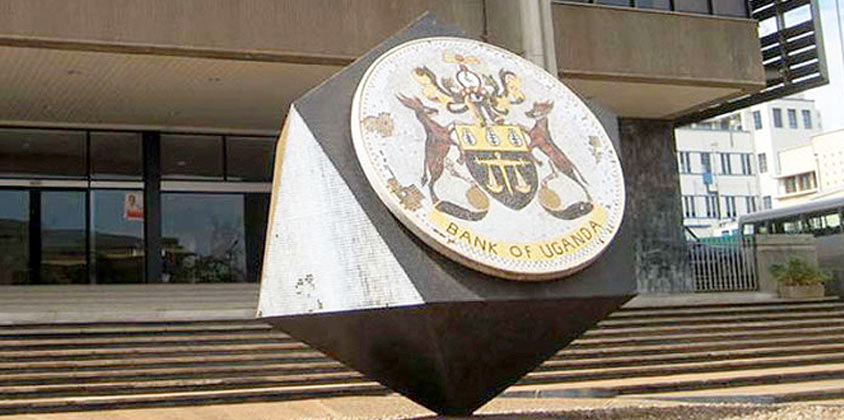Financial Regulation in Uganda: The Role of The Central Bank

Since 1966 the Bank of Uganda (the “Bank”) has functioned as the Central Bank of the Republic of Uganda. The statutory objectives of the Bank include the maintenance of a stable financial system, fostering economic stability and the formulation and implementation of monetary policy. In many ways, the Bank is the custodian of the financial system and in fact the economy of our country as a whole. Financial services go beyond intermediation to advisory, brokerage, investment, etc. The financial system covers the way in which financial decisions and relationships are made and implemented, i.e. laws, government policies, regulations, etc.
There is no singular law that governs the financial system in its entirety, but only aspects of it. In that regard, the Financial Institutions Act 2004 is the primary legislation relating to the financial sector and even so, only to specific institutions therein. There are other relevant laws however as far as the Bank is concerned, the key legislation through which it exercises its mandate is the Financial Institutions Act 2004.
Under the law, a “Financial Institution” is defined as a company licensed to carry on or conduct financial institution business in Uganda. The Act defines “financial institution business” to include acceptance of deposits, issuance of deposit substitutes, lending or extending credit, engaging in foreign exchange business, issuing and administering means of payment such as credit cards, providing money transmission services, among others.
As times change, the Bank’s role has and will continue to evolve and its success will be judged on its ability not only to maintain a stable financial system but also to foster economic growth and protect the public. In a post crisis environment such as in the wake of the global financial crisis of 2007 or the 2020 Covid19 pandemic, the role of the Bank is even more critical and is cast in the limelight as the economy looks to it for leadership and interventions that should forestall the worst effects of a crisis or hasten recovery. Arguably, one of the impediments or limitations of this effort is the legislative or regulatory climate within which the Bank operates. Not enough liberties are embedded within Uganda’s current financial regulatory regime, to enable the Bank creatively respond to a crisis, more so in a wholesome manner. For example, fiscal interventions such as reduction of interest rates were implemented by commercial banks in a lacklustre manner, and only after threat of action by the Bank.
Even worse, the sectoral model of financial regulation in Uganda is not coherent, or efficient and is likely to be dogged by the pitfalls of lack of coordination and absence of uniformity of standards across the entire financial sector. It is worth noting that the financial sector is not made up of only those institutions supervised by the Bank. Such a model or structure of regulation where every sector in the system has its own regulator does not help the Bank reach the real economy, and yet expectations are that its policies and interventions in such times should trickle down to the grassroots. This is because each regulator has its own objectives, standards and policy responses, and there is no statutory mandate to coordinate or accountability of one to the other.
With the proliferation of financial technology, the financial sector in Uganda has been disrupted and opened up for non-traditional players. Today, like never before, the sector is quite fluid and difficult to define or delimit. Regulating the sector therefore requires a more nuanced approach. With this in mind, legislation ought to evolve in such a manner that the mandate and policies of the Central Bank extends to and are directly applicable across the entire financial sector, rather than assume that such policies will naturally percolate down.
The Bank already recognises services such as insurance, microloans, savings, and payment facilities as financial services. The presence of such other financial institutions at the grassroots is an opportunity for Uganda to increase access to financial services, and to use policy or law as a tool to drive economic growth and stability.
Financial regulation be it through the Bank or other regulators needs to organically grow and evolve in response to modern day challenges. Such challenges include far reaching globalisation and integration, advanced industry consolidation, persistent competition, and incessant technological advances in financial services. Other aspects of regulation that need to evolve relate to matters such as objectives or tasks, relationship with government and other stakeholders, interaction with financial markets at both macro and micro levels, and internal management and decision making processes. In conclusion, the challenges of regulating the modern financial sector are likely to be felt by the stakeholders as well, such the companies engaged in this sector.
This is because, as the Bank adjusts to modern trends, and with the technological disruption, inefficiencies and bureaucracy is likely to abound thus making legal compliance and the cost of doing business generally high. We advise our clients in this sector to conduct a legal audit of their business to ascertain how prepared they are to continue their operations in an ever changing environment.



